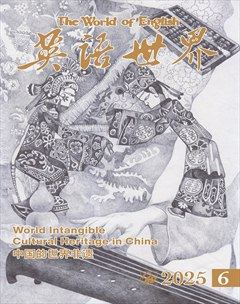读到那篇引起广泛讨论的文章《我们如此深爱我们的儿女,他们爱我们吗?》,不禁想表达一些不同的观点。
After reading the widely discussed article titled “We Love Our Children So Much, Do They Love Us in the Same Way?”, I feel compelled to offer a different perspective.
该问题的提出,实际建立在这样一个命题基础上:父母之所以爱子女,是因为他们期待子女会以理所当然的爱回报父母1。这显然是一种传统观念。
The premise of the article is based on the assumption that parents love their children because they naturally expect their children to love them in the same way. This belief, however, is rooted in tradition.
应当知道,父母对子女的爱与子女对父母的爱,是两个不同的概念。
It is important to recognize that the love parents have for their children and the love children have for their parents are distinct concepts.
在现代文明社会中,父母对子女的爱不仅是出于本能,更应该是不求回报2的,因这是对社会细胞——家庭所应承担的责任。
In today’s modern civilized society, parental love should be both instinctive and unconditional, as it is a responsibility that comes with family—the fundamental unit of society.
父母看着子女从幼小到长大,他们的天真、活泼、可爱,直至成才与成熟3,这整个过程本身就是对父母最大的慰藉。子女长大成人,拥有自己的生活、家庭和事业,这已是父母爱的最好成果,还有什么更多的奢望呢?
Parents find solace in watching their children grow from infancy to adulthood, witnessing their innocence, loveliness, and cuteness, and eventually seeing them mature. This journey itself is a profound source of comfort and joy for parents. When children grow up, build their own lives, and succeed in both family and career, that is the ultimate reward for parents’ love. What more could parents ask for?
随着社会福利和医疗体系的完善,在西方发达国家,父母 “养儿” 已不再为了“防老”——既不需要他们经济上的支持,也不需要生理上的照顾,甚至不需要感情上的时时陪伴。如,在澳大利亚医院里,子女无法陪护父母,因护理工作是由专业人员承担。随着中国经济和制度的不断进步,我们也可能逐步朝这个方向发展。
Surely, this does not mean that parents love their children any less. As the saying goes, “A parent’s home is always a home for their children, but a child’s home is not always a home for their parents”. In modern families, even after children have established their own lives and careers, it’s reasonable for parents, when possible, to provide support in various forms.
当然,这并不意味着父母对子女的爱会因此减少。俗话说:“父母的家永远是子女的家,而子女的家却不是父母的家”。





